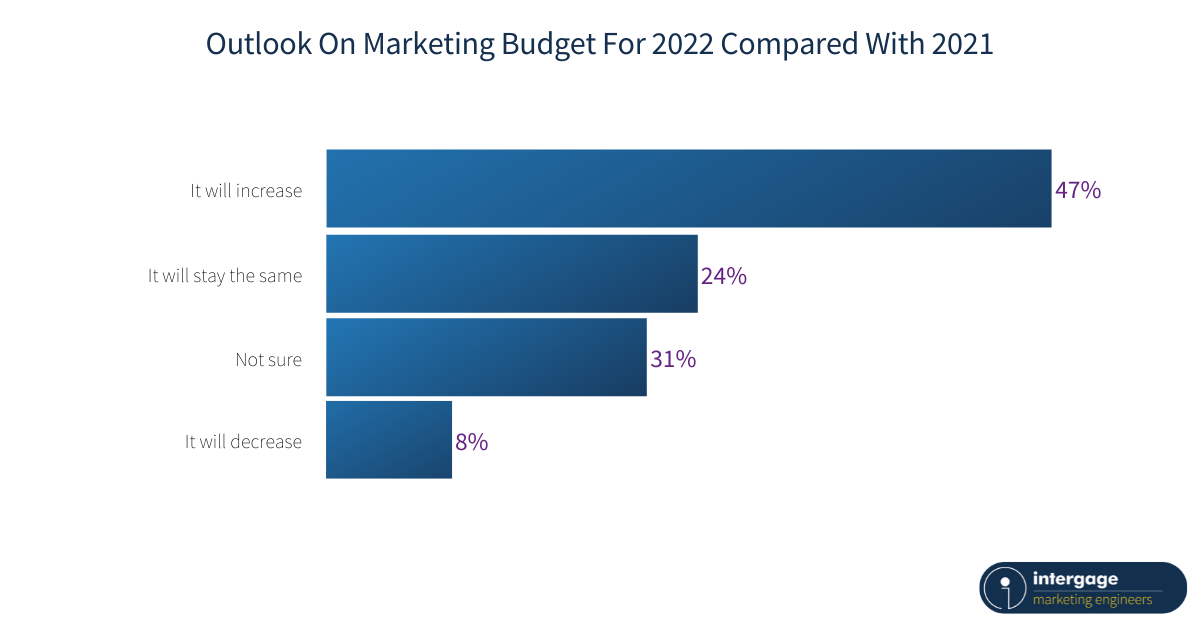What Are B2B Businesses Doing With Marketing Automation?
2
Minute Read
A recent survey from 2016 published by Ascend2 highlighted some interesting findings of how businesses (predominantly B2B) are using Marketing Automation to their competitive advantage. They carried out a Marketing Automation Trends Survey and completed interviews with 239 marketing influencers. The survey was conducted online by a panel of more than 50,000 professionals representing the following company sizes:
Number of Employees
More than 500 28%
50 to 500 25%
Fewer than 50 47%
Primary Marketing Channel
B2B 71%
B2C 13%
B2B and B2C Equally 16%
B2B 71%
B2C 13%
B2B and B2C Equally 16%
You can read the latest Ascend2 reports here.
Here are some of the most interesting findings from the report.
Who Is Using Marketing Automation?
71% of companies surveyed currently use Marketing Automation to some extent. Another 23% are not using it now but are planning to in the foreseeable future.
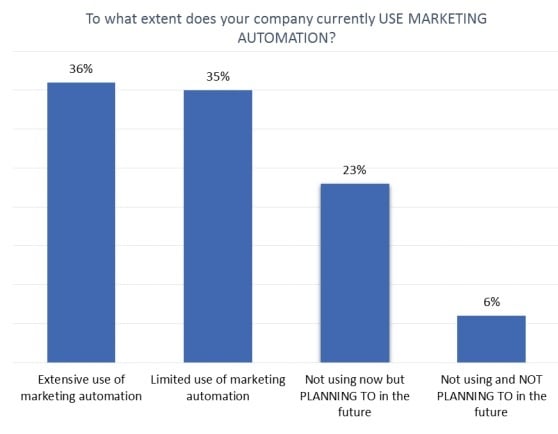
How Important is Marketing Automation?
The businesses surveyed have high hopes for Marketing Automation with more than three-quarters of companies (76%) saying it is “Very important” to their overall marketing performance.
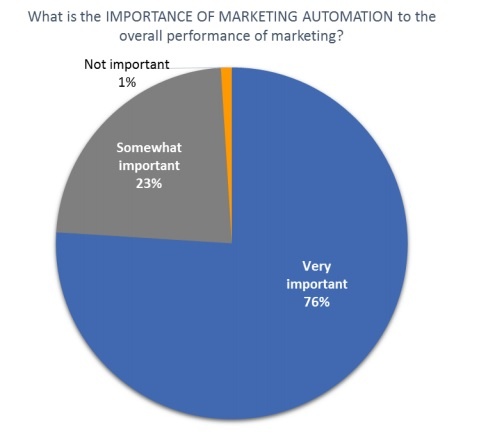
What are the Most Important Goals of a Marketing Automation Strategy?
So what were these marketers hoping to achieve with Marketing Automation? The top priorities are increasing lead generation (61%) and improving lead nurturing (57%). Third-placed priority is increasing sales revenue (47%).
Out of all the respondents who wanted to "Improve lead nurturing," 82% also said "Very important" when asked how important Marketing Automation is to marketing performance.
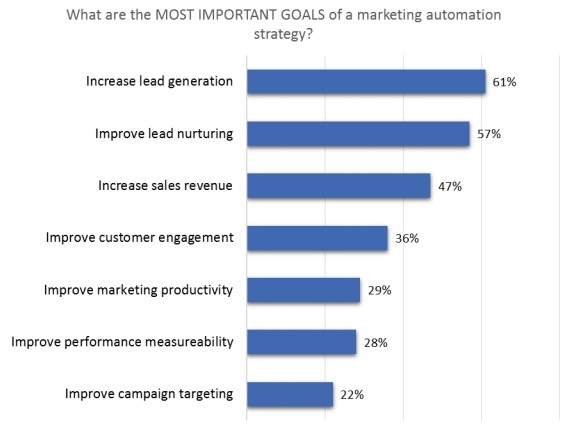
What are the Most Significant Barriers to Marketing Automation Success?
By far the biggest barrier to Marketing Automation success, by those that had undertaken a project is the lack of an effective strategy. This is very revealing, highlighting the need to get the strategy right before you dive in with software and implementation.
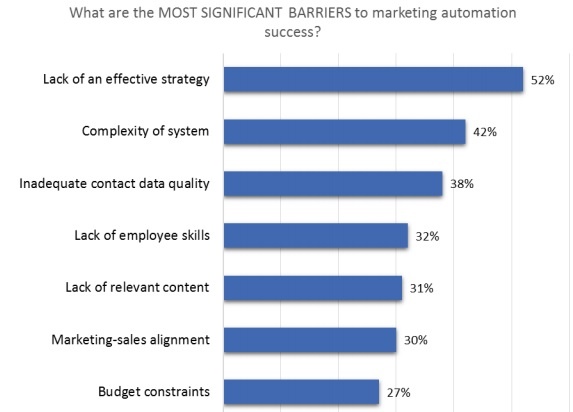
Which Best Describes the Resources Used For A Marketing Automation Strategy
Often it is worth getting expertise from an agency that has carried out a Marketing Automation project before. And that’s probably why we see that 63% of companies outsource all or part of their Marketing Automation strategy.
What are the Most Useful Features of a Marketing Automation System?
If asked to guess before seeing the results of this survey I would have chosen lead scoring and lead nurturing as the two stand-out features of any Marketing Automation system. So this is interesting reading and may be explained by the fact that companies may use different features (and not all features) of a Marketing Automation system.
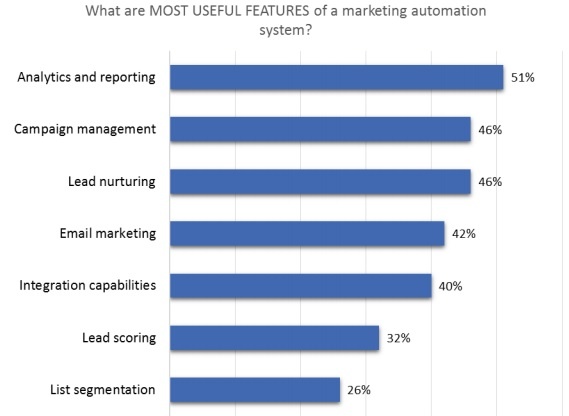
How Long From Implementing Marketing Automation to Seeing the Benefits?
Almost two-thirds of the respondents expected to realise the benefits of their Marketing Automation efforts within six months of implementation. Although 17% thought that it could take 10 months to over a year to really see the benefits.
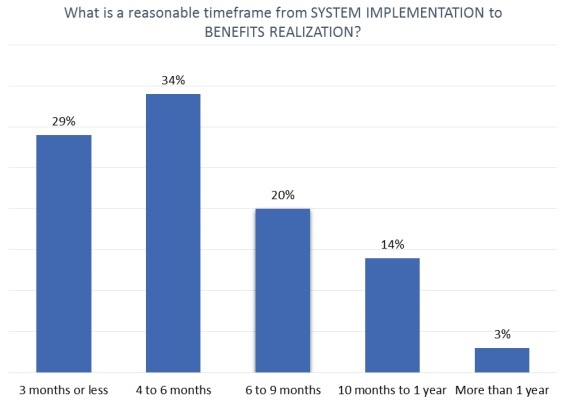
What are the Most Useful Metrics for Marketing Automation Performance?
The most useful metric for evaluating Marketing Automation performance is the rate of conversion, with 62% of companies. Following a little bit behind this is revenue, leads and engagement, respectively:
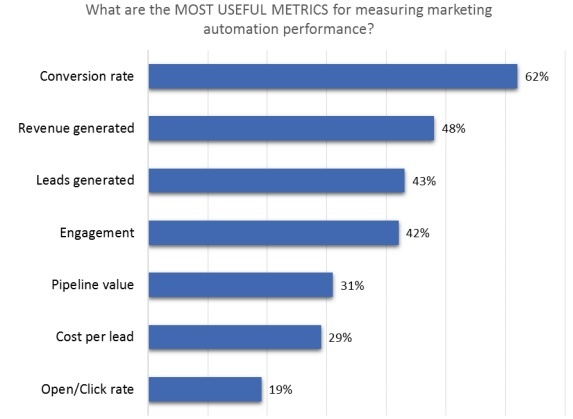
It is always interesting to see how other organisations are using Marketing Automation, what the challenges and benefits are and how important they see the technology going forward.
If you are considering marketing automation for your organisation, why not come along to one of our free seminars, held quarterly.
And if you want to take the next steps to see how marketing automation and inbound marketing can help your business, download our e-book now.


